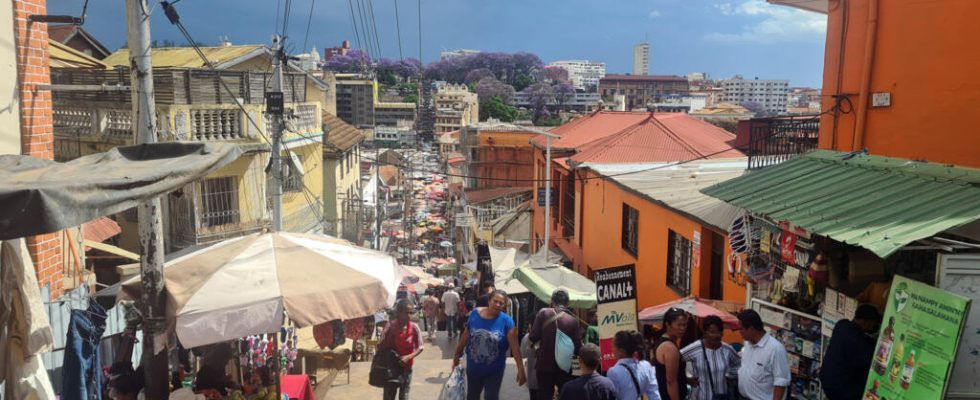Polling stations opened at 6 a.m. (local time) this Thursday in Madagascar. 11.5 million voters are called to vote to elect their President of the Republic for the next five years. But of the 13 candidates registered on the single ballot, only three are calling to vote, including President Andry Rajoelina who is seeking a second term. The other 10 call on voters to avoid the polls. What legitimacy will this first round have and will it resolve the political crisis in Madagascar? And what are the expectations of the Malagasy people?
3 mins
Will the Malagasy people go en masse to the polling stations or will they boycott the presidential election as asked by the 10 candidates of the Collective, who took to the streets to demand new rules of the game? The participation rate will be determining whether or not to give legitimacy to the result that outgoing President Andry Rajoelina hopes for, namely victory in the first round, in the absence of other heavyweights in the race.
Because regarding the organization of the vote, there are already numerous criticisms from Malagasy observers. If the Safidy association platform still decided to deploy 5,000 observers in almost half of the country’s polling stations, the World Council of Churches threw in the towel on Wednesday.
Read alsoPresidential election in Madagascar: the standoff intensifies before the first round
But given the deep divide that now runs through the political class, the outcome of the vote will likely be contested. The election therefore risks not being enough to resolve the political crisis which has taken hold for almost six months on the Big Island. The candidates of the “collective of 10”, who called for a boycott, also affirm that the vote is “ rigged and played in advance “.
I would like most of the Malagasy people to benefit from social protection. Get treatment for free, even if it means paying monthly contributions to benefit from social protection. So health, and education: I expect it to really improve the education system. Building establishments is not enough. Competent personnel and adequate equipment are required inside.
Report: what social measures and help do the Malagasy people hope for?
Three candidates out of thirteen
Three candidates out of 13 therefore face each other in the polls. The first is obviously Andry Rajoelina, the outgoing president democratically elected at the polls in 2018, who nevertheless drags behind him his past as a putschist. In 2009, he came to power thanks to a mutiny and led the transitional regime until 2014.
He presents himself as a “great builder” and highlights, in his assessment, the numerous infrastructures which have grown up all over the island. If his last months at the head of state were tarnished by various affairs – the revelation of his French naturalization, the arrest of his chief of staff in London, caught in the act of corruption or the revelation of the acquisition of a license for the Predator spyware – Andry Rajoelina assures everywhere that he will win, “ and in the first round “.
Read alsoMadagascar: what is the outcome for outgoing president Andry Rajoelina who is seeking his own succession?
Facing him, Siteny Randrianasoloniaiko, 51, deputy for Tuléar, in the Great South of the country. He came from the presidential party IRD, but has since distanced himself. Coming from a disadvantaged background, the president of the African Judo Union, who became a rich businessman, is favored by the inhabitants of the Malagasy coast. He advocates decentralization and promises to dismantle the Bianco and the PAC (Anti-Corruption Centers), two anti-corruption bodies, ineffective according to him.
The third man is new to politics. Sendrison Raderanirina, 62, spent his career mainly in France, as IT manager for a large hotel group. Also naturalized French, and returned to the island in 2020 to “ help your country escape poverty “, He wishes “ place the basic needs of the Malagasy citizen at the heart of the State’s priorities “. An idealist, he has just campaigned by car and on foot: “ one way, he assures, to better understand the realities of the vast Malagasy territory “.
Our political debates are above all: how can we not go to bed hungry?
Report: economic issues at the heart of Malagasy concerns
